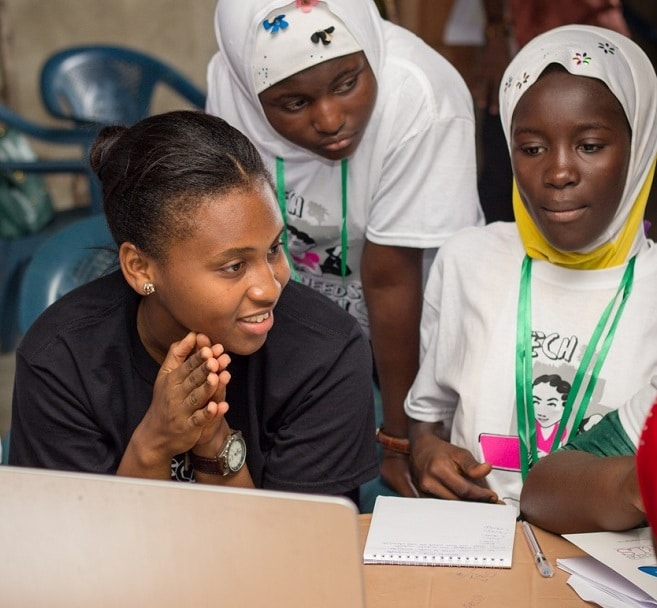The technology industry has long been reserved for male entrepreneurs, but an online discussion among female tech experts all across Africa sheds light on how many women have already made their presence known in the field.
Statistics show that the number of women in the technology world is low.
In June, Yahoo’s Equal Employment Opportunity statistics revealed that although nearly 40 percent of the company employees are female, only 15 percent are in tech-related positions.
Other major companies, such as Dropbox, have a little over 8 percent of their female employees involved in software engineering, according to a 2013 spreadsheet released by Pinterest software engineer Tracy Chou.
Female tech entrepreneurs, like Ethel Cofie of Ghana, are on the way to reversing these troubling statistics.
Cofie is one of the pioneering members of a “Women in Tech” group that is working to create an alliance of female tech experts all across Africa.
According to Cofie’s guest article on CNN’s website, her own online efforts marked the first time someone had attempted to “build a pan-African Women in Tech network that would allow [women] to compare [their] challenges, learn from each other and connect across borders” to increase their influence.
Cofie teamed up with four other African women, all from different countries, to organize a digital meetup earlier this month.
More than 150 women signed up to be a part of the meetup and the online movement spread like wildfire.
By the time the Aug. 2 meetup ended, the hashtag #WtechAfrica had reached nearly 75,000 people and made close to 200,000 impressions on Twitter.
The online event certainly did not go smoothly, however.
Cofie explained that technical difficulties threatened to put an end to the massive meetup, but the determination by the participants kept the discussion alive and allowed it to have more reach.
The meetup was originally supposed to take place on Google Hangout, but when poor connections and other technical difficulties made it nearly impossible for the large group of women to effectively communicate, it appeared that Cofie’s efforts were doomed.
That’s when she realized many of the participants had moved the discussion to Facebook and eventually over to Twitter.
As it turns out, problems with Internet connections and power shortages are some of the major obstacles facing tech entrepreneurs in Africa, and Cofie admitted that those challenges will make diversity in the tech realm an uphill battle.
“The problems that African women in tech face are not very different from the ones female techies in many other parts of the world also come across,” she wrote in her guest piece. “Yet, these challenges, coupled with some Africa-specific problems like power shortages and broadband inaccessibility, create an uphill task for women wanting to enter the industry and develop the high-level technical skill required in order to progress.”
With successful female tech experts like Regina Agyare of Soronko Solutions in Ghana, and Rebecca Enonchong of AppsTech in Cameroon, Cofie knows it is still very possible for women to continue thriving in this male-dominated field that she hopes won’t be quite so male-dominated in the near future.



